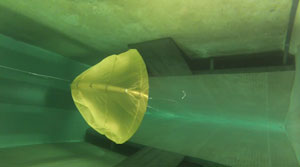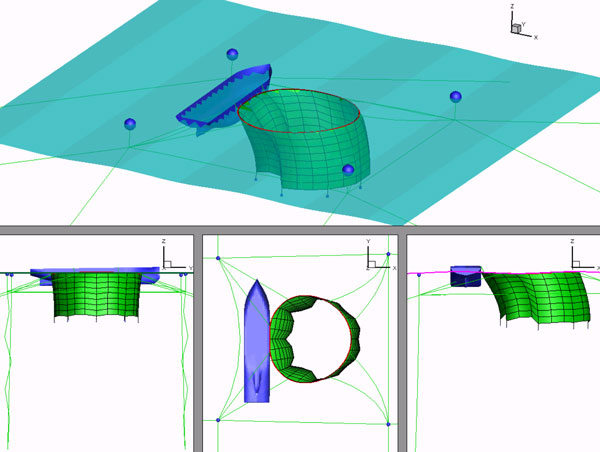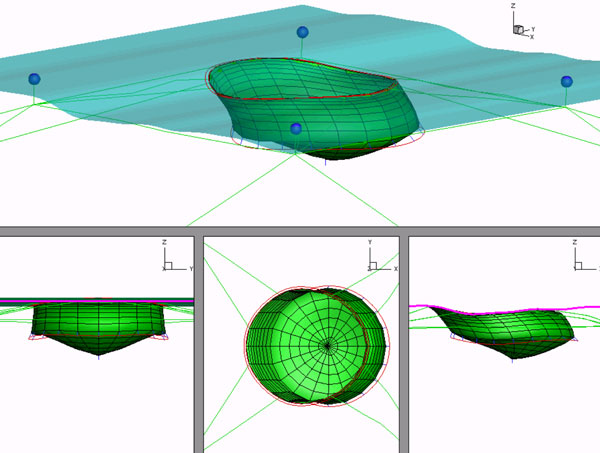Project 2: Intelligent aquaculture structures - AMOS
Intelligent offshore aquaculture structures
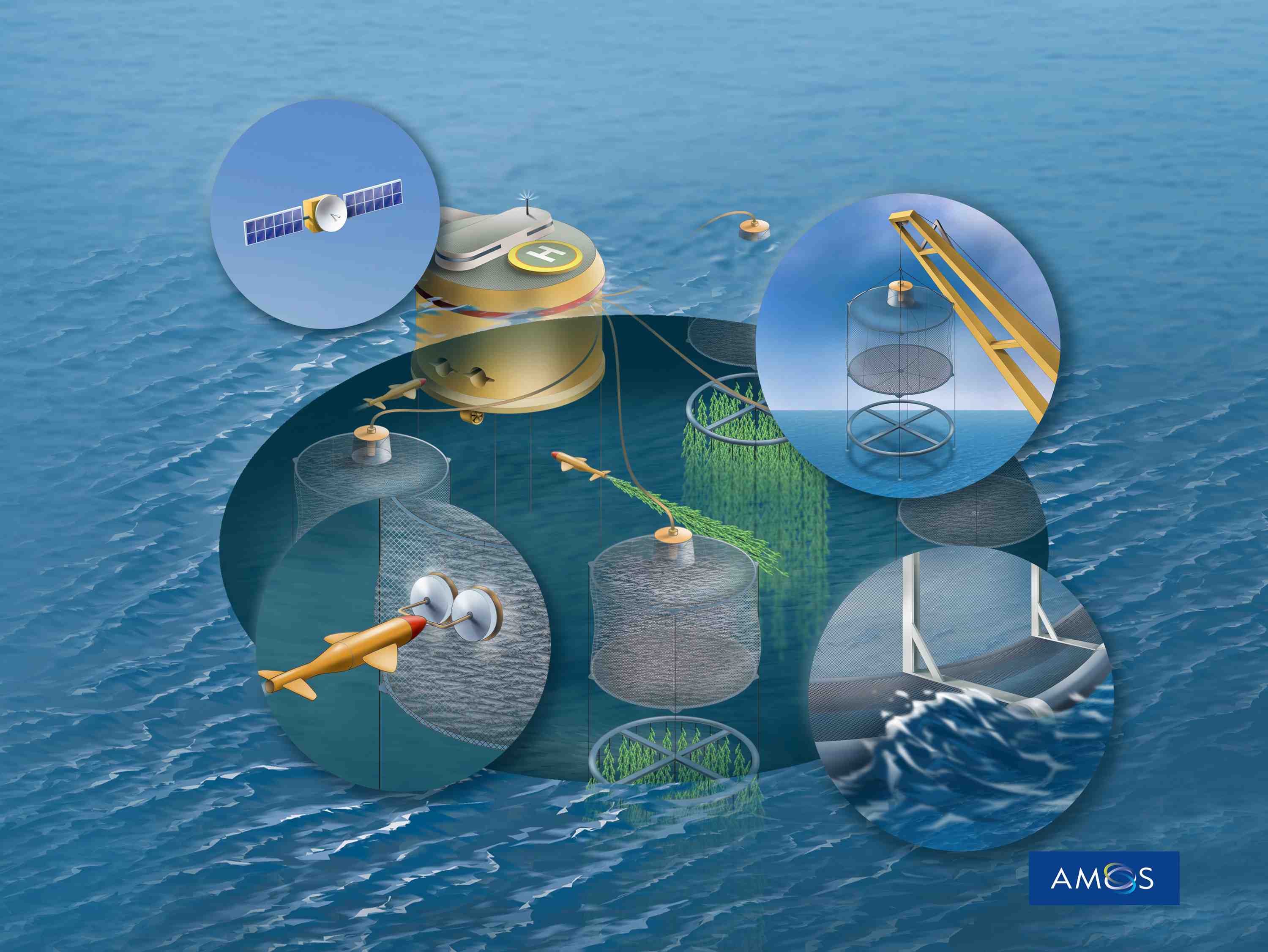
Marine fish farming is in rapid development. Dimensions are expected to increase and locations are being moved to areas exposed to more energetic waves and stronger currents. Collapse of fish farms, with large-scale fish escape to the level experienced in the past, will not be tolerated. New and extreme loading scenarios need to be properly designed for by means of first principles methods to meet required safety levels and performance. Hydrodynamic loads and motions on fish farms in severe waves and current will be studied. Limiting operational conditions, fatigue and ultimate strength assessment, are examples of focused research areas.
Level of autonomy will be enhanced through assessing nonlinear passive control and supervisory-switched control for load reduction and configuration control subject to varying environmental conditions for marginally dimensioned offshore structures to survive in harsh environments. The investigations will be targeted to enable reliable prediction of hydroelastic behaviour, wave overtopping, viscous loads on the nets, wake-interaction effects inside the net, net damage and fish escape.
Videos from project 2
Closed Flexible Fish Cages (experiment by Ida M. Strand, NTNU AMOS):
To solve the sea lice challenge for the net based aquaculture industry, it is proposed to use closed floating systems in the sea. One type of closed system is a Closed Flexible Fish Cage, this system resembles the net based system, but the net is exchanged with a membrane. To understand the response of the Closed Flexible Fish Cage in current and waves, more knowledge was needed. To build this knowledge, multiple model experiments were run for different filling levels, for current and waves.
Fish-farm system in exposed sea conditions (numerical studies by Yugao Shen, NTNU AMOS)
Project manager
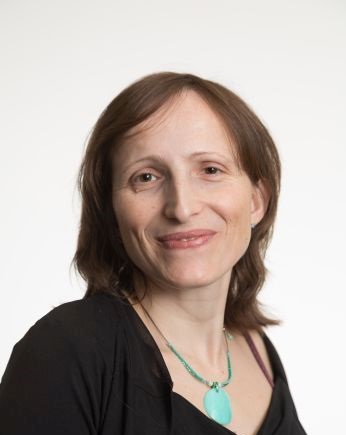
Professor Marilena Greco
NTNU Department of Marine Technology
Centre for Autonomous Marine Operations and Systems (NTNU AMOS)

